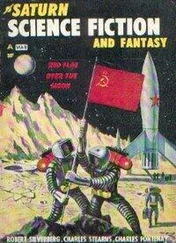“Son, I’m General Medaris and the speed limit is now sixty.”
It was in this characteristically rebellious manner that Medaris assumed command of the newly created Army Ballistic Missile Agency on February 1, 1956. ABMA had just been founded by administrative fiat in what was essentially a bureaucratic counteroffensive by the army to keep the burgeoning air force in check. The old Army Air Corps, once an insignificant asterisk in the army’s accounting ledgers, had become an unstoppable juggernaut since gaining its independence as a separate service in 1947. In the nuclear age, bombers, not tanks, kept America safe, and it was pilots, not grunts, who were the darlings of politicians and policy makers. John Foster Dulles’s strategic deterrent so strongly favored the young air force that it now swallowed forty-six cents of every military dollar. Its manpower now nearly equaled that of the army, whose budget and personnel had shrunk by half, and air force assets in 1956 exceeded those of the fifty-five largest U.S. civilian corporations combined.
The army was thus fighting a rearguard action to stay relevant in the rapidly shifting military pecking order. The humiliating infantry debacles of the Korean War had not helped its cause, and missiles offered the West Pointers one of the few new areas with potential for expanding their role. Rockets, after all, were natural extensions of artillery. The air force, however, had different ideas, making the case that missiles were nothing more than delivery systems, effectively unmanned bombers, and thus ought to be assigned to the Strategic Air Command. Not to be left out of the squabbling, the navy quickly developed its own distinct missile doctrine and leaped into the fray as well.
An all-out rocket war had erupted among the three services, and it was into this internecine conflict that Medaris was thrust as the army’s point man. Ironically, the very same character traits that rubbed his superiors the wrong way had recommended him for the post. “You are aggressive. Some would say to a fault,” he had been told on winning the ABMA job, hardly a customary endorsement. But right now the army needed someone with his particular talents for this difficult mission.
Medaris reflected on his new assignment as he waited for the big military transport bearing the secretary of defense to arrive from Washington. His own plane, a four-seat Aero Commander, sat at the other end of the tarmac, and in the spirit of interservice rivalry he preferred to pilot it himself rather than trust his fortunes to the air force.
There had been little time to prepare for this important visit, and in the few weeks afforded to him, Medaris had done what he could to whip the month-old missile agency and its dilapidated buildings into shape. ABMA’s headquarters had been hived off the 40,000-acre Redstone Arsenal, a neglected World War II munitions and chemical weapons plant that did not enjoy “a great reputation at that point,” in Medaris’s own words. Black skull-and-bones contamination warning signs still hung from rusted barbed-wire fences strung around the skeletal remains of abandoned chemical depots. Squat, circular storage bunkers dotted the landscape like concrete igloos. The cavernous old assembly lines and the cracked and grimy windowpanes gave off an air of postindustrial misery.
ABMA’s fortunes seemed nearly as grim as the headquarters the army had given it. But it did have one ace in the hole: Wernher von Braun and the brain trust behind the V-2, the greatest team of rocket scientists on earth. Medaris’s first order of business had been to cordon off von Braun’s research facilities from the rest of the ramshackle base, bypassing procedure with a scribbled note on the back of an envelope that read “You are authorized to procure and install fencing.” This was typical of Medaris and decidedly not the way the Army Quartermaster’s Office did things, yet another reason he had been denied promotion from colonel to brigadier general on three consecutive occasions during the war, despite endorsements from Bradley, Patton, and Eisenhower himself. Corner-cutting got timely results for the frontline generals, but it left a lot of noses out of joint back in Washington, where they preferred their paperwork duly filled out in triplicate.
With only a few weeks to prepare for the secretary of defense’s inspection tour, Medaris hadn’t had time for bureaucratic niceties. He’d ordered the buildings scrubbed and the grounds swept. ABMA’s 1,700 civilian scientists had been issued strict instructions to tuck in their shirttails and assume a more military posture. Special flags and insignias had been designed and distributed to impress guests and instill esprit de corps, and MPs in parade uniforms, each man at least six feet tall, had been posted outside doors, elevators, and anywhere else a VIP delegation might venture. Medaris had even refurbished an old plantation log house as a hospitality center to make the secretary’s stay more pleasant.
Just about the only thing he had not anticipated was how his well-laid plans would backfire.
• • •
Of all the corporate titans who made up President Eisenhower’s “cabinet of millionaires,” none was bigger than Secretary of Defense Charles E. Wilson. White-haired and blue-eyed, with a bulldog’s bulky frame, the Ohio native had run General Motors with an iron fist since 1941, overseeing its huge defense production during the war and its ambitious retooling efforts afterward to put a car in every American driveway. Under his folksy and forceful stewardship, GM had become a symbol of America’s awesome industrial might. Of the 7,920,000 automobiles sold by Detroit in 1955, a 2-million-vehicle increase over 1954, more than half had been built by GM. It was Wilson, a workaholic who usually slept just three hours a night, who had given America the V-8 engine and had fueled the country’s passion for size and speed. He had pioneered the monthly car payment plans that made financing the preferred method of purchasing automobiles, and he had tamed the unions by negotiating productivity and cost-of-living escalator clauses that ensured labor peace for decades.
Wilson’s skillful planning and execution had made General Motors the biggest company in the world, and he himself had come to personify the new class of American executives democratizing boardrooms across the country. They were midwesterners by and large, from small towns and state colleges, who didn’t have Brahmin pedigrees or suites at the opera. Plain-spoken and plain-clothed, they vacationed on the Great Lakes rather than in the south of France and collected hunting rifles instead of antique rugs. Wit, and hard work, not family connections, had gotten them to the top, and the elite East Coast establishment had had no choice but to make room for them. The self-made tycoons were hailed as examples of the new American meritocracy.
For all his success in the private sector, Engine Charlie—thus nicknamed to distinguish him from Charles “Electric Charlie” Wilson, the former General Electric chairman who had run President Harry S. Truman’s Office of Defense Mobilization—was not a natural fit as a public servant. Congress took an immediate dislike to him when it emerged during his confirmation hearings that he planned on keeping his GM stock while serving as defense secretary. The government post, he felt, already entailed a significant financial sacrifice in that his salary was diminishing from $566,200 to $22,500. There was no reason to surrender his shareholdings as well. Asked if this might pose a conflict of interest, since GM was one of the Pentagon’s largest contractors, Wilson had haughtily replied that he could not conceive of a situation where he would rule against the company anyway because for years he thought “what was good for the country was good for General Motors and vice-versa.”
Читать дальше












